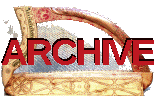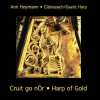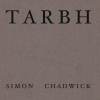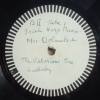 |
There are now many many recordings of Irish and Scottish harp music, but most of them use the Victorian revival harp, with gut strings. Recordings of the old music presented using a reproduction of one of the historical Gaelic harps are much less common. On these pages I am listing many such historical recordings, as well as other interesting and curious records which feature the old-style, metal strung, Irish annd Scottish harps.
Below are my personal favourites; above is a timeline you can click on to get a more representative selection.

The most important modern performer on the historical Gaelic harp is Ann Heymann. Her most recent (and best) album is the 2006 CD, Cruit go nÓr — Harp of Gold. This recording includes solo tracks played on a gold-strung copy of the Trinity College harp, as well as collaborations with voice and with other historical instruments. Ann’s previous, entirely solo CD, Queen of Harps is also highly recommended.

Siobhán Armstrong is the leading performer of early Irish harp in Ireland, playing a gold-strung copy of the Trinity College harp. Her solo CD from 2004, Cláirseach na hÉireann — The Harp of Ireland, showcases the ‘classic’ 18th century repertory including some songs by a leading Irish sean nos singer. Siobhán has also used early Irish harp on a number of other traditional and historical CDs.

My own latest CD, Tarbh, explores the old Scottish Gaelic tradition of ceòl mór, the great music usually played on the bagpipes. On this 2013 CD the tunes are presented in solo arrangements played on a replica of the medieval Scottish Queen Mary harp. I also have two earlier recordings available.

The first person (to my knowledge) to record early Irish harp music was Mabel Dolmetsch in 1937. Her family was involved in all kinds of historic music performance and research, and for her early Irish harp experiments she selected three tunes from the Bunting collections. Click here for more info.
Click on the dates above or below for comprehensive chronological listings. Many of these titles can be ordered from the Emporium.
Simon Chadwick